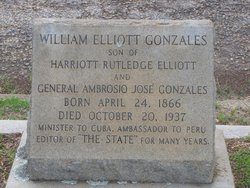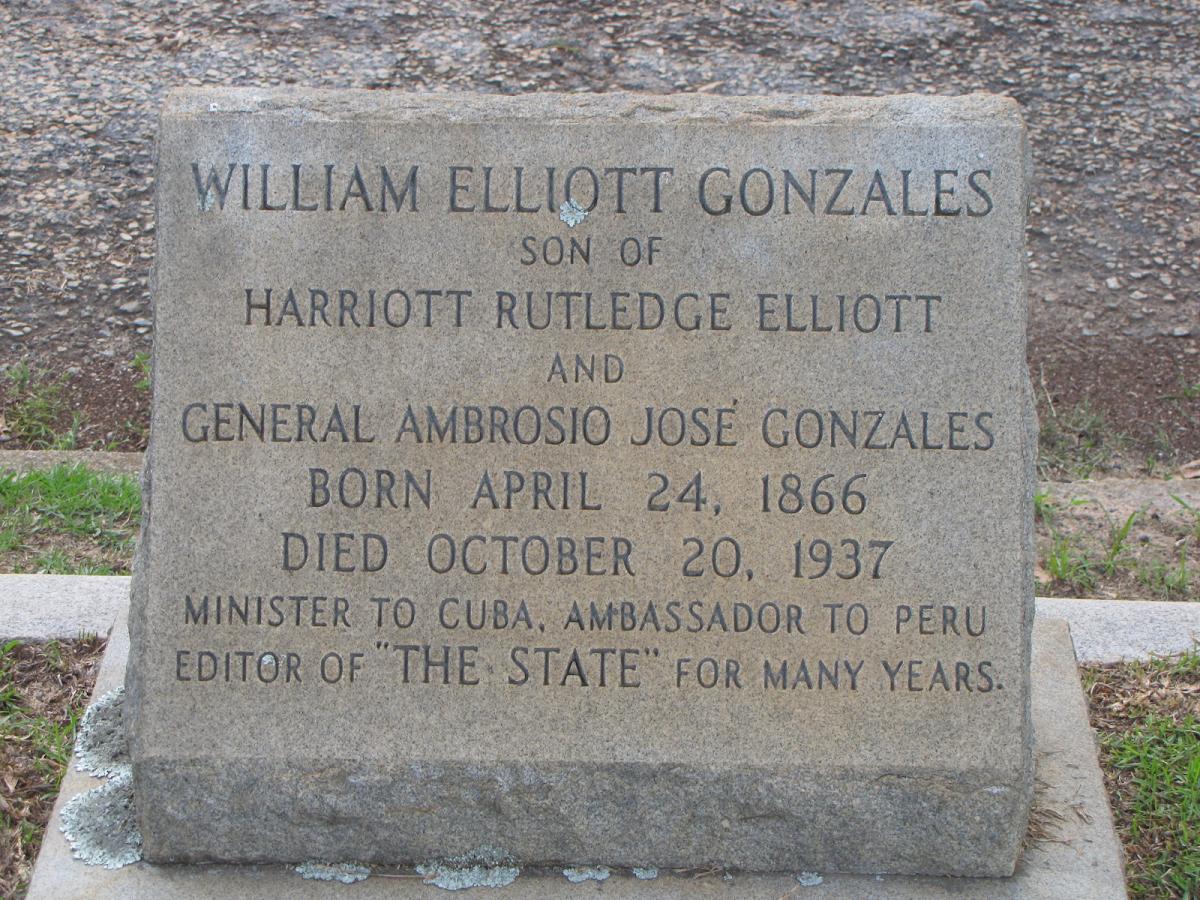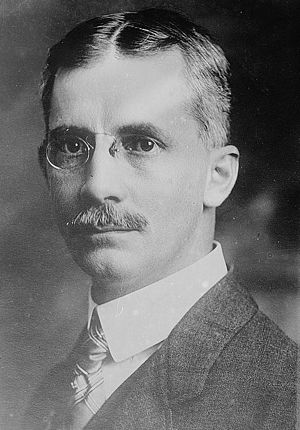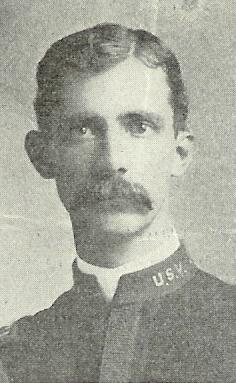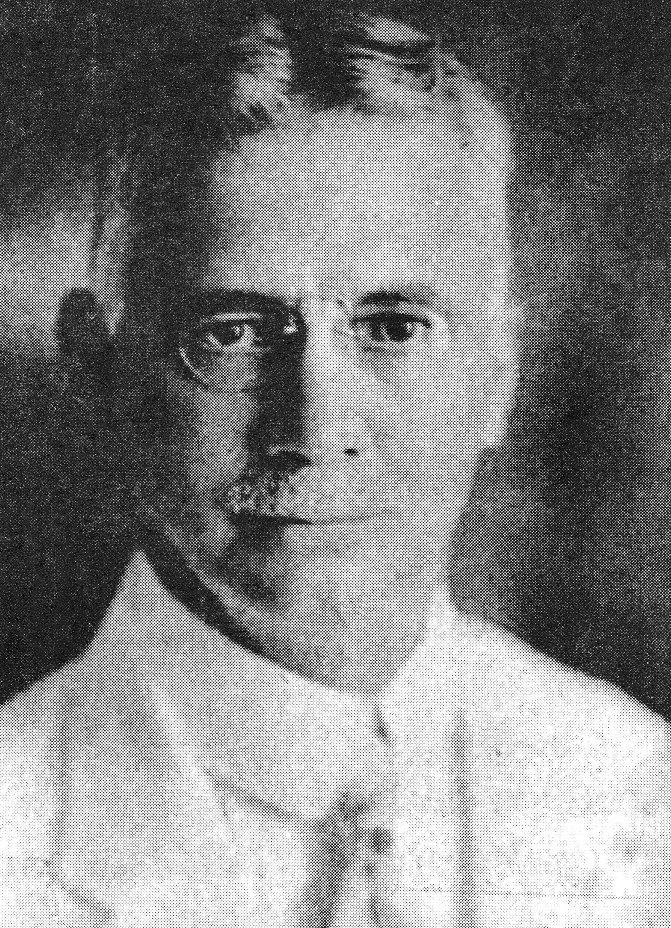Ambassador to Peru, 1919-1921.
William (Benigno) Elliott's mother, Harriett Rutledge Elliott married, in 1856, Ambrosio Jose Gonzales (born 1816), a Cuban revolutionary in exile in the United States.
The Gonzaleses had six children: Ambrosio Jose Junior, (1857-1926); Narciso Gener (1858-1903); Alfonso Beauregard (1861-1908); Gertrude Ruffini (1864-1900); Benigno (later changed to William)(1866-1937); and Anita (born 1869).
The children of Harriett Rutledge Elliott and Ambrosio Jose Gonzales all used more than one name in the course of their lives: Ambrosio usually signed his letters as "Brosie" and was known in adulthood as Ambrose Elliott Gonzales. Narciso was known affectionately in the family as Nanno, called himself Elliott during his school days, and used his initials, N. G., professionally. Gertrude Ruffini was called Tulita as a little girl, and was later known as Trudie. Alfonso Beauregard was alternately called Fonsie, Beaury, or Bory. Benigno changed his name to William Elliott and was called Minnie as a boy, Willie as a young man, and Bill as an adult. Anita's name was changed to Harriett Rutledge soon after her mother's death, and the family often called her Hattie.
Before the Civil War, Harriett Rutledge Elliott Gonzales and Ambrosio Jose Gonzales lived primarily in Washington, D. C., although Mrs. Gonzales spent considerable time with her family in South Carolina. During the war, Harriett Gonzales and her children stayed at Oak Lawn with the Elliott family while Ambrosio Jose Gonzales served in the Confederate army. After the war, Gonzales bought Social Hall plantation from the Elliotts and moved his family there. In 1869, the Gonzaleses moved to Cuba, where Harriett Elliott Gonzales died of yellow fever in October 1869. After their mother's death, Ambrosio Jose Gonzales took four of his children to Oak Lawn, leaving Narciso and Alfonso in Cuba with friends for a year. In 1870, he moved the two boys to Oak Lawn as well, where all the Gonzales children were raised by their grandmother, Ann Hutchinson Smith Elliott, and their aunts, Ann and Emily Elliott.
In the aftermath of the Civil War, the Elliotts and Gonzaleses at Oak Lawn struggled to regain title to their land and to make a living from their plantations. Lack of funds limited the formal education of the Gonzales children. The two older boys, Ambrose and Narciso, worked as telegraphers and then as correspondents for the Charleston News and Courier to help support the family in the 1870s and 1880s.
Ambrose, Narciso, and William Elliott Gonzales are best known for establishing and publishing a daily newspaper, The State, in Columbia, S. C. They started the paper to lead the opposition to Benjamin R. Tillman after Tillman was elected governor in 1890. The State took outspoken positions against lynching, for child labor laws, for better education, and for other social and political reforms, but the anti Tillman campaign overshadowed all other issues. In 1903, N. G. Gonzales died from a gunshot wound inflicted by Tillman's nephew, Lieutenant Governor James H. Tillman, who blamed Gonzales for his defeat in the Democratic gubernatorial primary in 1902. After N. G. Gonzales's death, Ambrose Elliott Gonzales assumed additional editorial responsibilities and, with his brother William Elliott Gonzales, continued to publish The State. William Elliott Gonzales published the paper until his death in 1937.
Ambassador to Peru, 1919-1921.
William (Benigno) Elliott's mother, Harriett Rutledge Elliott married, in 1856, Ambrosio Jose Gonzales (born 1816), a Cuban revolutionary in exile in the United States.
The Gonzaleses had six children: Ambrosio Jose Junior, (1857-1926); Narciso Gener (1858-1903); Alfonso Beauregard (1861-1908); Gertrude Ruffini (1864-1900); Benigno (later changed to William)(1866-1937); and Anita (born 1869).
The children of Harriett Rutledge Elliott and Ambrosio Jose Gonzales all used more than one name in the course of their lives: Ambrosio usually signed his letters as "Brosie" and was known in adulthood as Ambrose Elliott Gonzales. Narciso was known affectionately in the family as Nanno, called himself Elliott during his school days, and used his initials, N. G., professionally. Gertrude Ruffini was called Tulita as a little girl, and was later known as Trudie. Alfonso Beauregard was alternately called Fonsie, Beaury, or Bory. Benigno changed his name to William Elliott and was called Minnie as a boy, Willie as a young man, and Bill as an adult. Anita's name was changed to Harriett Rutledge soon after her mother's death, and the family often called her Hattie.
Before the Civil War, Harriett Rutledge Elliott Gonzales and Ambrosio Jose Gonzales lived primarily in Washington, D. C., although Mrs. Gonzales spent considerable time with her family in South Carolina. During the war, Harriett Gonzales and her children stayed at Oak Lawn with the Elliott family while Ambrosio Jose Gonzales served in the Confederate army. After the war, Gonzales bought Social Hall plantation from the Elliotts and moved his family there. In 1869, the Gonzaleses moved to Cuba, where Harriett Elliott Gonzales died of yellow fever in October 1869. After their mother's death, Ambrosio Jose Gonzales took four of his children to Oak Lawn, leaving Narciso and Alfonso in Cuba with friends for a year. In 1870, he moved the two boys to Oak Lawn as well, where all the Gonzales children were raised by their grandmother, Ann Hutchinson Smith Elliott, and their aunts, Ann and Emily Elliott.
In the aftermath of the Civil War, the Elliotts and Gonzaleses at Oak Lawn struggled to regain title to their land and to make a living from their plantations. Lack of funds limited the formal education of the Gonzales children. The two older boys, Ambrose and Narciso, worked as telegraphers and then as correspondents for the Charleston News and Courier to help support the family in the 1870s and 1880s.
Ambrose, Narciso, and William Elliott Gonzales are best known for establishing and publishing a daily newspaper, The State, in Columbia, S. C. They started the paper to lead the opposition to Benjamin R. Tillman after Tillman was elected governor in 1890. The State took outspoken positions against lynching, for child labor laws, for better education, and for other social and political reforms, but the anti Tillman campaign overshadowed all other issues. In 1903, N. G. Gonzales died from a gunshot wound inflicted by Tillman's nephew, Lieutenant Governor James H. Tillman, who blamed Gonzales for his defeat in the Democratic gubernatorial primary in 1902. After N. G. Gonzales's death, Ambrose Elliott Gonzales assumed additional editorial responsibilities and, with his brother William Elliott Gonzales, continued to publish The State. William Elliott Gonzales published the paper until his death in 1937.
Inscription
WILLIAM ELLIOTT GONZALES
SON OF
HARRIOTT RUTLEDGE ELLIOTT
AND
GENERAL AMBROSIO JOSE GONZALES
BORN APRIL 24, 1866
DIED OCTOBER 20, 1937
MINISTER TO CUBA, AMBASSORDOR TO PERU
EDITOR OF 'THE STATE' FOR MANY YEARS
Family Members
Sponsored by Ancestry
Advertisement
Advertisement
